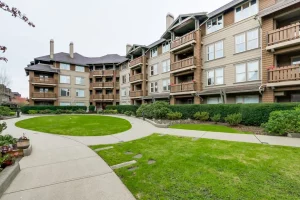Sectional Title levies are used for the upkeep of the Sectional Title Scheme and the common property as well as the day-to-day running of the scheme. It is in the interest of all owners within a scheme to pay their levies on time and in full as these levies contribute to the overall health of the scheme. When owners don’t pay their levies, it puts unnecessary pressure on the other paying owners and has a detrimental effect on the scheme as a whole.
What are Sectional Title levies and why are they needed?
There are two different types of levies, namely levies for the Administrative Fund (which involves the day-to-day running of the scheme) and levies for the Reserve or Maintenance Fund (which involves the long-term maintenance and upkeep of the scheme).
Levies are determined by the AGM which has to consider and adopt a budget yearly. Trustees have an obligation to collect outstanding levies from non-paying owners. The levy contributions are used to pay for the services necessary to maintain the building. Should owners not pay for their levies, the building cannot be maintained and eventually it will fall into debt. To circumvent the indebtedness of the body corporate, bodies corporate are empowered to recover the outstanding levy contributions from non-paying owners. There are legal costs associated with the recovery of the outstanding levy contributions, but who is responsible for these costs?
Recovery of outstanding levies
There are various ways to recover outstanding levy contributions. One way is utilizing the courts to recover outstanding levy debt from non-paying owners. Court proceedings are often a lengthy and costly exercise, however, can be effective if the Body Corporate is equipped with the correct legal representation. Legal representation in South Africa can be costly and the cost for such action should be included in the budget.
In terms of the Prescribed Management Rule 25(4), the scheme can only recover legal costs from a debtor at a rate that is reasonable, taxed or agreed. So this places an obligation on the other paying owners to fit the bill for the difference of the recoverable legal fees versus what was charged by the attorneys. This difference can be substantial.
However, a court is permitted to make an order of costs against the owner to pay the legal fees incurred in full. Such an order was made by Judge F Kathree-Setiloane in the matter of Body Corporate of Central Park v Mosa
A similar judgment was passed in the matter of Matsheke v The Body Corporate of Monterey by Acting Judge CSP Oosthuizen-Senekal. The Judge found it unfair that the Body Corporate bears the costs of the collection and made an order to the effect that the debtor pays the costs of the application on an attorney and client scale.
The consequences of unpaid levies.
The crux of the matter is that owners who do not make payment of their levies hold bodies corporates at ransom and in some instances drive the body corporate into debt. At that time the body corporate has limited solutions on how to recover the outstanding contributions and then we see applications being bought by the body corporate to recover the unpaid contributions.
In applying Prescribed Management Rules 25(4) as well as the decisions of the judges in the above cases, it is again becoming possible that non-paying owners bear the legal costs incurred by the Body Corporate to recover outstanding levies.
For financial assistance without catching your Body Corporate in a debt trap and to help in resolving issues with non-paying owners, contact us. Stratafin is your most trusted financial services provider in the Community Schemes industry.













